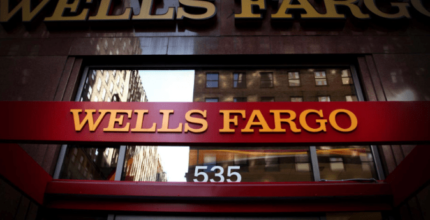
via vocativ.com
American prisons have constructed an outrageous money-generating system that charges exorbitant fees for families to send money to inmates, for the inmates to use the money on debit cards, and even inactivity fees when the inmates don’t use the cards, according to an investigation by Al Jazeera America.
And perhaps most disgusting of all, the private companies that operate these revenue streams are required to send kickbacks to the government agencies that operate the prisons. It is an elaborate scheme that generates millions in profits by bilking dollars and cents from some of the country’s poorest and most vulnerable families.
“Prison is a racket,” Delonda McInelly, a former inmate at Arizona’s Perryville facility, told Al Jazeera. “It really is a profitable business. The families are being treated like criminals and it’s not fair.”
State, local and federal government agencies spend tens of billions of dollars a year to operate the nation’s prisons. In addition to that, a vast web of private companies make billions providing services including transportation, food, medical care and telephone calls.
As can be expected, America’s voracious capitalist system has figured out a way to make huge dollars exploiting society’s weakest and most vulnerable people. Combined with a racist criminal justice system, the end result is that a large percentage of the exploited are Black.
And unlike with consumer debit cards, there’s no regulation of these prison release cards, meaning the banks can charge whatever they want.
This is a list of the various fees agencies manage to squeeze from inmates and their families, according to the report:
*An ATM withdrawal fee of nearly $3 per transaction on the debit cards—called “release cards”—the prisons use to hand over the money the inmate has collected from family members and prison jobs when the inmate is released.
*A $1.50 fee per balance inquiry.
*An account maintenance fee of as much as $2.50 per week, even if no transactions are made.
*A closing fee of $30 to transfer the funds to a bank account.
*A fee of 30 percent or more for family members to send an electronic money transfer.
* In states such as Arizona, a $25 background check fee for every first-time visitor to the prison.
* In some states, an automatic 1 percent fee for every deposit into an inmate’s account.
In addition, while families previously used money orders to send funds, some facilities have eliminated that as an option, forcing families to use the pricey money transfer system, with its outrageous 30 percent fee. Facilities that still allow money orders require them to be sent to the vendor, not the prison—resulting in a process that could take weeks for the money to hit the inmate’s account. It’s a not-so-subtle way to force families to use the money transfer system.
Rosemary Collins, who has a son in Alabama’s St. Clair state prison, told Al Jazeera she has to mail a money order to the vendor Keefe Group in St. Louis.
“For a money order I have to mail it to Missouri,” she said. “I’m in Alabama. It takes about two weeks for it to get to my son’s account. That’s the slow boat to China.”
“People used to send a money order directly to the institution and it took 2-3 days to get into your account. After JPay [one of the biggest vendors] it took 7-14 days before the money got credited,” Adryann Glenn, an inmate who was locked up in Virginia, told Al Jazeera. “JPay doesn’t really want your money order. They want you to use the money transfer.”
On the government’s side of the ledger, most of these private vendors send a cut of the collected fees directly to the prison agencies and jails. According to Al Jazeera, “These ‘commissions,’ essentially legalized kickbacks, make money transfers and other fee-generating services a reliable profit engine for the corrections agencies themselves.”
“These companies compete not by offering the best product to the people who use them,” said Carl Takei of the ACLU, “but by offering the biggest commission to [the agencies] that sign the contracts.”
For example, JPay’s contract with the Florida Department of Corrections sends the government agency a fixed commission of $2.50 for every money transfer.
In Indiana, JPay’s agreement guarantees a minimum of $100,000 in guaranteed annual commission payments to the prison agency.
“This is essentially found money for corrections departments that are often faced with staffing shortages and budget cuts in a country with the world’s highest incarceration rate,” Al Jazeera writes.
A 2014 survey commissioned by the New Jersey Department of Corrections found that in addition to adoption by the Federal Bureau of Prisons, 17 state prison agencies reported using the release cards.
Peter Wagner of the Prison Policy Initiative told Al Jazeera that their use is even more widespread among the nation’s nearly 3,300 jails. With almost 12 million people admitted to county and city jails each year, that means an enormous stream of cardholders subject to high fees.
While banking conglomerate JPMorgan Chase is the exclusive release-card vendor in federal prisons, the contracts in the state and local facilities are managed by smaller vendors such as JPay, Keefe Group, Numi Financial and Rapid Financial Solutions.
It’s not a stretch to imagine that a large percentage of the families who are sucked into this vast profit-making system are poor and struggling to keep food on the table. Julie Donald told Al Jazeera she sends money regularly to a close friend in Arizona’s Eyman state prison in varying amounts, depending on how much she can afford.
“Lately because I’ve been hurting on money I’ve been sending him only $25,” she said. “And it’s been a $5 fee just to do that. I don’t have a lot of money. If you keep adding [the fees] up it’s a lot.”
To afford to send money on a tight budget, Donald said, “I just don’t pay some bills.”
Dottie Smith broke down the particulars for the money she sends to her sister, who has been in Arizona’s Perryville prison for 15 years.
“We just sent her money today,” she said. “We sent $45 and they charged us $6.45. My mom and I do a ton of these money transfers. We alternate and send her money every other week. My mom works an extra job just so she can have money to send.”


